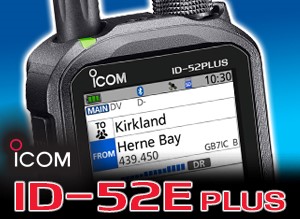Planning matters
Help for RSGB members to obtain planning permission for their aerials
As any amateur knows, the factor most likely to ensure success in amateur activities is the aerial. Most amateur aerials require planning permission from the local Council.
It follows that the consequences for an amateur of the Council refusing planning permission can be quite severe, ranging from a virtual prevention of operation to a much reduced tower height, a smaller HF beam or whatever.
To try to help Members make their way through the planning process, the Society established the Planning Advisory Committee and a panel of members skilled in the planning process.
What needs permission?
Strictly speaking most antenna systems require planning permission unless the installation falls under one or more of the following categories.
- The antenna is considered ‘permitted development’ (usually types similar to TV antennas and ground mount antennas up to three metres in height, etc. but some local councils allow more)
- The antenna/mast is present for less than 28 days per annum
- The antenna/mast is truly mobile
- Our online Planning FAQ is a good starting point
Resources available
The following resources are available to RSGB members—
Changes to the 4-year planning rule in England
The 4-year planning rule has offered a degree of protection for antennas and masts that have been erected without planning permission. Under this rule any installation which had been installed and unchanged for 4 years or more were protected against any planning enforcement action.
However, as of 25 April 2024, this rule will cease to exist in its current form in England under changes introduced under the Levelling-up and Regeneration Act 2023 (LURA), being replaced by a more stringent ten-year period for the exemption from enforcement for residential dwellings. This change does not affect Wales, Scotland and Northern Ireland where the four-year rule will continue to apply.
The Levelling-up and Regeneration Act 2023 will apply immediately to all newly installations not completed or substantially completed by 25 April 2024. After that date the installation will have to completed and unchanged for 10 years to avoid enforcement action for not having planning permission.
The new Act states that any installation that has been completed or substantially completed before the introduction of the Act will still be subject to the 4-year rule. For example if you completed the installation and can prove it to the satisfaction of the Local Planning Authority (usually the Council) by the 24 April 2024 and the Council chose to take enforcement action for you not having planning permission on the 23 April 2028, you could claim exemption under the previous 4 year rule, If it was not complete or substantially completed by the 26 April 2024, it would have to have been there and unchanged for 10 years or more before escaping enforcement action.
The wording of the Act effectively gives a grace period up to 25 April 2028 for completed or substantially completed installations completed by 24 April 2024.
There are a couple of points to note:-
- The installation has to remain present and unchanged for the 4 year/10 year rule to apply. Changing the antenna can restart the clock as can adding additional antennas.
- This Levelling-up and Regeneration Act 2023 only applies only in England The existing 4 year rule will remain in force in the rest of the UK.
- The Act does not give any guidance on what ‘substantially completed’ means.
Conclusions
Provided you are reasonable in what you want—a 100 foot tower with tribander in the 20 foot long garden of a terraced house would not be—many amateurs are successful provided they go about it in the right way.
Keeping the neighbours on your side is vital but panel members have successfully taken on many cases where there has been a substantial volume of neighbour objection and still gained permission. By law, the presumption is in favour of development, so do not be deterred by what you think the planners will approve. There may be some effort and cost involved, but satisfaction has always been being 40 over 9 into SP. I’m talking 23cm here of course. The committee and panel is here to try to help you do this.
Please note that this service is only available to RSGB Members.
For further information please email ar.dept@rsgb.org.uk.









